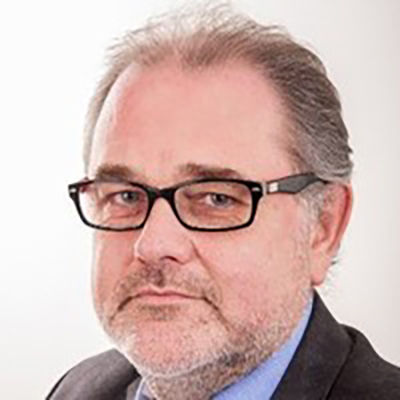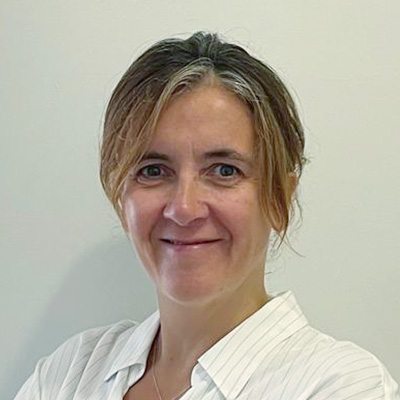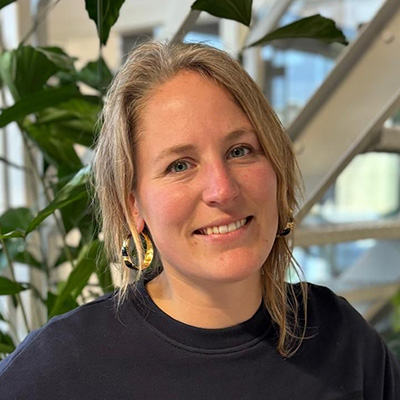Programme watercircle.be - VMx
(WASTE)WATER: from a source of pollutants to a source of renewables -
A circular approach to Resource recovery
(In Dutch / English)
(In Dutch / English)

Willy Gils
Watercircle.be

Minister Jo Brouns

Marie Inizan
Hach
The presentation will focus on the upcoming 2025 revision of the Urban Wastewater Treatment Directive (UWWTD), which marks a significant shift in wastewater management across Europe. With new and stricter discharge standards for nutrients, ambitious energy neutrality goals, and requirements for micropollutant removal, the sector faces both a challenge and an opportunity.
This session will explore how Hach’s advanced monitoring and control solutions support operators in:
- Ensuring compliance with tertiary and quaternary treatment standards (N, P, micropollutants)
- Preparing for energy neutrality targets by 2045 through process optimization
- Leveraging real-time data to reduce chemical and energy consumption
By taking action now, operators can future-proof their facilities, lower operational costs, and play a leading role in the shift toward a resilient, circular, and climate-neutral wastewater sector.

Jean Christophe Ades
Kemira

Sven Kempeneers
Water-Link
Water-Link, Flanders' largest water producer and supplier in the Antwerp region, and Kemira, a global leader in sustainable chemical solutions for water-intensive industries started to collaborate to address PFAS in drinking water.
Already now, Water-Link drinking water is closely monitored and complies with both the European Drinking Water (PFAS-20 below 100 nanograms per liter) as well as the quality requirements from the European Food & Safety Authority (reference value of 4 nanograms per liter for the sum of 4 PFAS molecules – PFOS, PFOA, PFNA and PFHxS)
However, this is not enough for this leading water utility and together with Kemira, both companies have started in 2025 a very important pilot trial at the Notmeir site, benchmarking 5 adsorbents, from regular granular activated carbon to wood based granular activated carbon and also three more selective PFAS adsorbents proposed by Kemira. The pilot trial will last 12 months and is taking place using parallel columns to test the different adsorbents with the same water.
Objective of the trial is to compare performance, Empty Bed Contact Time (EBCT), lifetime of the material before saturation as well as Total Cost of Ownership from each of the 5 adsorbents.
This presentation at Aquarama will highlight the ongoing setup and unveil the first results of this cutting-edge collaboration - a powerful step toward safer water and a PFAS-free future.

Justine Tytgat
BOSAQ & Water Experts

Maarten Deman
BOSAQ & Water Experts
As part of TotalEnergies’ sustainability ambitions, BOSAQ and Water Experts have co-developed and implemented together with TotalEnergies a sustainable water production solution, ensuring the efficient use of available water sources. This presentation highlights a specific case on water management strategies for the production of cooling liquids. By adopting innovative practices, the approach reduces reliance on and pressure to the drinking water , contributing to both environmental responsibility and operational resilience

Suzanne Reinartz
Inopsys
Inopsys has for many years been strongly committed to solutions for removing and recovering metals from wastewater.
Two real-world customer cases where the metals are made usable again are presented here.
Not only is the incineration of these waste streams avoided, but the metals are also made ready for re-use.

Sarah Vanbesien
Trevi
Trevi presents a case study where ultrapure water is made from wastewater using physicochemical purification, UF, double-pass RO, and CEDI, with evaporation of the RO concentrate. In addition, metal oxides are also recovered as raw materials from the physicochemical sludge and evaporator concentrate.

Michel Danau
Veolia
Veolia's Evaled evaporation technology supports industries in turning wastewater into valuable resources. Starting with the recovery of clean water, it extends to the extraction of raw materials. This approach not only reduces disposal costs but also supports circular economy goals. This presentation will include a real-world case study demonstrating the technology and process.

Daan Vandeplassche
Zwitterco
ZwitterCo's mission is to address global water scarcity by purifying water flows that had been difficult or impossible to treat. The company uses its zwitterionic chemistry to develop membranes with high resistance to organic fouling, oil and grease.
3 cases are discussed:
1. Water reuse: RO after MBR
2. Valorisation of starch in potato processing
3. Valorisation of protein-rich streams in meat processing

Ron Gerards
Waterleau
Waterleau presents a case study involving advanced wastewater treatment with oil recovery at a tank cleaning company in the Port of Antwerp. The technology train discussed consists of buffers, OWS, DAF, SBRs, ZF, and GAC.

Koen Vliegen
Nuoro
A high-efficiency heat pump is used to extract heat from the purified wastewater of the Ghent WWTP.
Previously, the heat from cogeneration was used to heat the digesters, but with the transition to biomethane, a new heat source is needed. The solution lies in the effluent from the sewage treatment plant. A heat exchanger and a heat pump are used to recover 700 kW of heat from the purified water to keep the digesters at the right temperature. This is the first time this process is being used on this scale in Belgium and represents an important step in using wastewater flows to make energy supplies more sustainable.

Filip Raymaekers
United Experts

Rohald Guilliams
Guilliams Green Power
At the Guilliams Green Power (GGP) processing site, residual flows (manure and organic biological waste) are recovered and converted into renewable flows. The site has been producing green energy (heat and electricity) and renewable fertilisers (nutrient flows) for many years. Recently, it has also become possible to further purify residual flows into fully-fledged alternative water sources. The path to an optimised system requires not only the right technology, but also the right operation and a good knowledge of the applicable legal framework. In this presentation, Filip Raymaekers (PROFEX, external environmental coordinator at GGP) and Rohald Guilliams (Managing Director at GGP) will provide a testimonial on the stumbling blocks and opportunities encountered in running an installation like GGP’s.

Jasmine Oosterlinck
Witteveen+Bos
Further steps towards a circular economy will require more than purification processes alone. The production processes themselves must be fundamentally questioned and redesigned so that they give rise to fewer unwanted effects from the source and enable circularity. This article discusses a number of examples in which the treatability of water flows is improved by intervening in various processes to achieve greater water reuse with less impact on the environment.